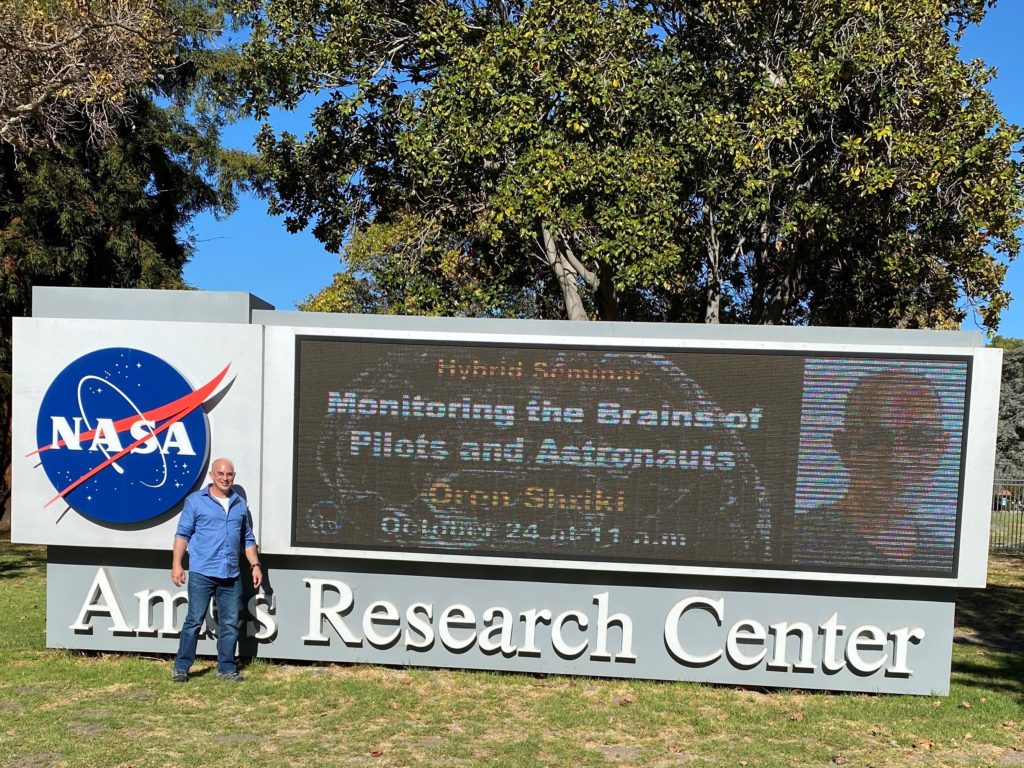
A Drug That Prevents Epilepsy After a Brain Injury
A Drug That Prevents Epilepsy After a Brain Injury
April 24, 2014
Medical Research, Press Releases
BEER-SHEVA, Israel, April 24, 2014 — A team of researchers from Ben-Gurion University of the Negev (BGU), UC Berkeley and Charité-Universitätsmedizin in Berlin, Germany have determined that the blood-pressure drug losartan may also prevent cases of epilepsy that result from severe head trauma.
According to a new paper published in the Annals of Neurology, the researchers found that losartan (Cozaar®) prevented a majority of cases of post-traumatic epilepsy in a rodent model of the disease. If independent experiments now underway confirm this finding, human clinical trials could start within a few years. Approximately 10 to 20 percent of all epilepsy cases are caused by severe head trauma.
“This is the first-ever approach in which epilepsy development is stopped, as opposed to using common drugs that try to prevent seizures once epilepsy develops,” says Dr. Alon Friedman, BGU professor of physiology and neurobiology and a member of the Zlotowski Center for Neuroscience at BGU. “Those drugs are administered for many years, have limited success and involve many side effects, so we are excited about the new approach.”
The experiment showed that administration of losartan for three weeks at the time of injury was enough to prevent most cases of epilepsy in normal lab rats in the following months. The drug prevented seizures in 60 percent of the rats tested, when typically all develop seizures after this model of injury. In the 40 percent of rats that did develop seizures, they averaged about one quarter the number typical for untreated rats.
After 10 years of collaborative research, the team offers the first explanation for how brain injury caused by a blow to the head, stroke or infection leads to epilepsy. Specifically, following a trauma, there is a breach in the blood-brain barrier, which is the tight wall of cells lining blood vessels in the brain.
“Today, if someone comes to the emergency room with traumatic brain injury, they have a 10 to 50 percent chance of developing epilepsy, and epilepsy from brain injuries tends to be unresponsive to drugs in many patients,” Friedman says. “In addition, since breakdown of the blood-brain barrier may also be associated with other complications, including bleeding and changes in cognitive functions, we are expecting that our approach will prevent complications other than epilepsy.”
Friedman has been investigating the effects of trauma on the brain for two decades. His main interest is in the blood-brain barrier, which normally protects the brain from potentially damaging chemicals or bacteria in the blood and prevents brain chemicals from leaking into the bloodstream.
Drug Side Effect Provides Benefit
Coauthor Guy Bar-Klein, a doctoral student at BGU, searched a long list of drugs before discovering losartan, which is approved to treat high blood pressure because it blocks the angiotensin II receptor 1, but which incidentally was also found to block TGF-β signaling. It worked in the rats even when delivered in their drinking water, which means that it gets into the brain through the disrupted blood-brain barrier.
In parallel, Friedman’s lab together with the brain imaging group at Soroka University Medical Center headed by Dr. Ilan Shelef, developed a protocol to use MRI to diagnose whether the blood brain barrier has been breached, allowing doctors to give losartan as a preventive treatment if necessary after trauma. Friedman said that the barrier may remain open for only a few weeks after injury, so the drug should be given only to those patients who need it, and for a limited period.
The team of researchers also includes Daniela Kaufer, UC Berkeley associate professor of integrative biology and a member of the Helen Wills Neuroscience Institute, and Uwe Heinemann of the Charité.
The study was funded by The European Union’s Seventh Framework Program, the Israel Science Foundation, the United States-Israel Binational Science Foundation and the National Institute of Neurological Disorders and Stroke of the National Institutes of Health (RO1/NINDS NS066005).
ABOUT AMERICANS FOR BEN-GURION UNIVERSITY
By supporting a world-class academic institution that not only nurtures the Negev, but also shares its expertise locally and globally, Americans for Ben-Gurion University engages a community of Americans who are committed to improving the world. David Ben-Gurion envisioned that Israel’s future would be forged in the Negev. The cutting-edge research carried out at Ben-Gurion University drives that vision by sustaining a desert Silicon Valley, with the “Stanford of the Negev” at its center. The Americans for Ben-Gurion University movement supports a 21st century unifying vision for Israel by rallying around BGU’s remarkable work and role as an apolitical beacon of light in the Negev desert.
About Ben-Gurion University of the Negev
Ben-Gurion University of the Negev embraces the endless potential we have as individuals and as a commonality to adapt and to thrive in changing environments. Inspired by our location in the desert, we aim to discover, to create, and to develop solutions to dynamic challenges, to pose questions that have yet to be asked, and to push beyond the boundaries of the commonly accepted and possible.
We are proud to be a central force for inclusion, diversity and innovation in Israel, and we strive to extend the Negev’s potential and our entrepreneurial spirit throughout the world. For example, the multi-disciplinary School for Sustainability and Climate Change at BGU leverages over 50 years of expertise on living and thriving in the desert into scalable solutions for people everywhere.
BGU at a glance:
20,000 students | 800 senior faculty | 3 campuses | 6 faculties: humanities & social sciences, health sciences, engineering sciences, natural sciences, business & management, and desert research.
For all press inquiries, please contact:
James Fattal, J Cubed Communications
516.289.1496



